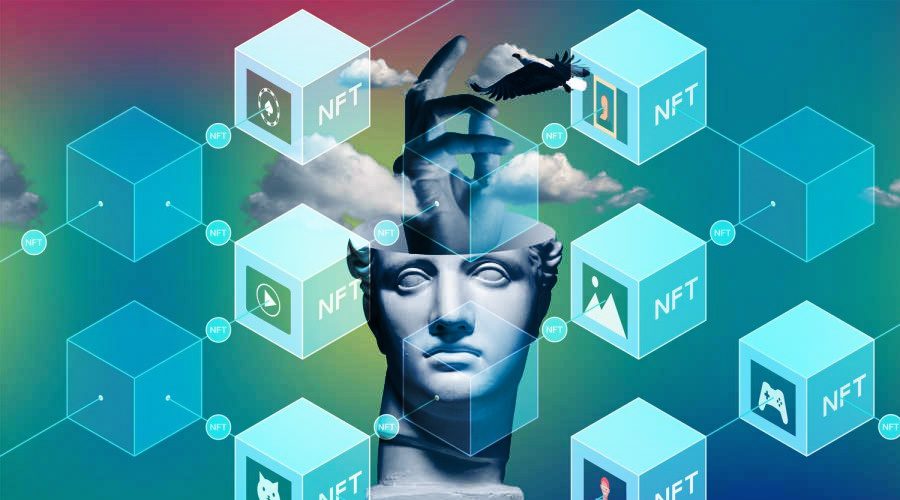 Here is an overview of the best 7 blockchains for creating NFTs in an intuitive way
Here is an overview of the best 7 blockchains for creating NFTs in an intuitive way
Non-fungible tokens (NFTs), programmable units of unique data that cannot be modified once recorded in a distributed ledger, are created by companies, creators, and developers using several blockchains.
However, because each blockchain has advantages and disadvantages, these organizations, producers, and developers must grasp the distinctions before deciding which blockchains are appropriate for their NFT campaigns.
Best 7 Blockchain for Creating NTFs:
Ethereum:
Ethereum is the most extensively utilized blockchain for NFTs. Because it is extremely decentralized, it provides the legal and financial services required for transactions without the necessity of middlemen.
Ethereum is ideal for establishing new projects since it is well-established and has a big user base. It also hosts some of the most popular NFT projects, such as Doodles and the Bored Ape Yacht Club; NFT artists, such as Beeple and Pak; and NFT markets, such as OpenSea and Axie Infinity.
However, Ethereum is difficult to employ for large-scale apps because of scalability difficulties.
Solana:
Solana, the second biggest NFT blockchain, features a burgeoning NFT ecosystem. It addresses certain blockchains’ transaction speed and scalability restrictions, such as Bitcoin and Ethereum. Because of its cheap fees and faster transaction speeds, Solana is an excellent choice for any NFT.
However, the blockchain is not as popular as Ethereum and has attracted criticism from some who believe it is not sufficiently decentralized. Solana had a series of slowdowns and halted in 2022, forcing the blockchain to reconfigure how it handles inbound traffic.
Solana’s top NFT collections are Bored Ape Solana Club, Degenerate Ape, and Smyths. These NFTs may be traded in Solana-based NFT markets such as Yaw, Hyperspace, and Solsea.
Cardano:
Cardano wants to build a robust ecosystem for developing decentralized apps and markets for artists and collectors by allowing transactions in its native cryptocurrency, ADA.
All Cardano operations, including minting, acquiring, and selling NFTs, involve fees determined by the size of the files being transferred. As a result, larger files will be charged more than smaller files.
CNFT.io, which hosts Cardano NFTs such as Clumsy Ghosts, Clay Nation, and SpaceBudz, is a popular Cardano NFT marketplace.
Tezos:
Tezos is an open-source, decentralized blockchain that allows for smooth peer-to-peer transactions. It is ideal for NFT artists wishing to mint NFTs due to its minimal expenses. People may connect to the enormous Tezos community of developers, collectors, artists, and merchants by building their projects on the blockchain.
The Tezos FA2 standard allows users to create single and multi-token smart contracts. Tezos employs a proof-of-stake consensus process, which requires less energy than proof-of-work systems.
BNB Shrewd Chain (BSC):
The BNB Brilliant Chain (formerly the Binance Shrewd Chain) enables NFT initiatives, while the BNB Signal Chain (originally the Binance Shrewd Chain) supports marking, voting, and other administrative projects. People that build NFTs on the BSC do so to make them compatible with other blockchains.
Furthermore, NFT creators use the BNB Savvy Chain stage for their enterprises since it is less expensive and faster than other blockchains and because of its Ethereum Virtual Machine (EVM) and cross-chain compatibility.
Flow:
Stream, an elite exhibition blockchain, is designed to enable clients to create applications, NFTs, and enormous crypto games. Stream is optimized for speed and scalability. It is also engineer friendly, which is critical to enabling the blockchain to become the leading platform for gaming apps, decentralized autonomous organizations, and NFT producers.
Stream is most known for NBA Top Shot, the NFT commercial center where basketball enthusiasts can buy, sell, and trade Public Basketball Association video cuts and computerized artistry.
Polygon:
Polygon, an Ethereum Layer 2 scaling solution, addresses Ethereum’s scalability difficulties by providing a framework for establishing and linking many sidechains that run in parallel with the Ethereum mainnet. This allows for cheaper and quicker transactions while preserving Ethereum’s decentralization and security.
Polygon is a common choice for NFT projects that want to improve the user experience while lowering high petrol costs. Polygon NFTs may be minted and sold on PlayDapp, Refinable, NFTrade, and OpenSea markets.




